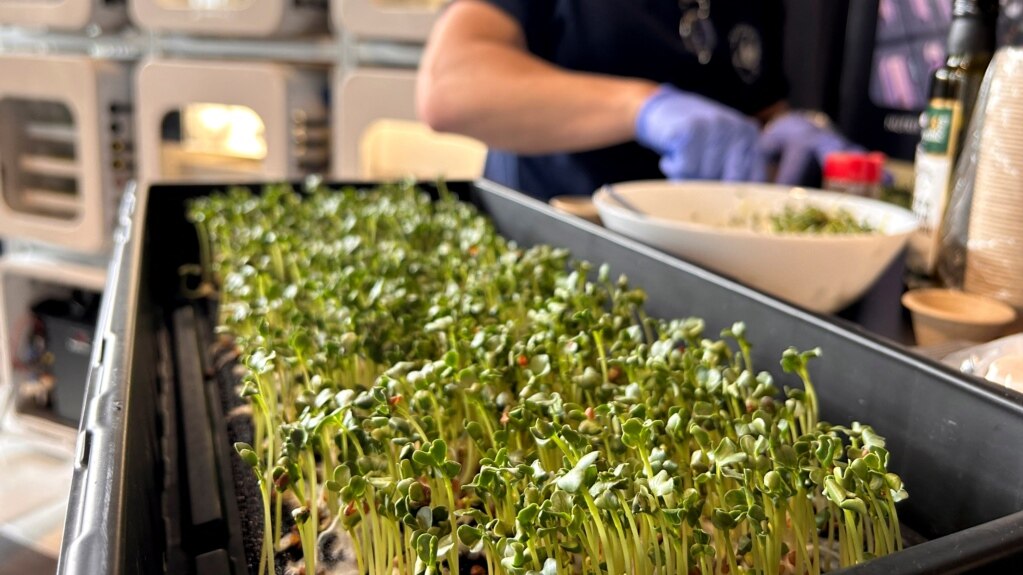The American space agency NASA is supporting new methods to grow food in space to support astronauts during long missions.
NASA recently announced the winners of a competition in which teams proposed ways to produce unusual foods in space.
The agency plans to send astronauts to the moon and Mars in the future. It also hopes to establish long-term bases in space. To do this, NASA says it will need to find effective food production systems to support human space travelers.
NASA’s competition is called the Deep Space Food Challenge. The latest part of the challenge involved teams creating small, working models of food production systems designed for space. The systems should require few resources and create little waste.
Judges from NASA chose eight winners. Five of the teams are based in the United States. The others were based in Australia, Sweden and Finland. NASA invited all the winners to create full-size versions of their food production methods over the next year. The U.S. teams also each received $150,000 in prize money to help develop their systems.
Amy Kaminski helped organize the competition for NASA’s Space Technology Mission Directorate in Washington. Kaminski said she was pleased to announce the winners and looks forward to seeing "where these teams can take their technologies next."
One of the winners was Air Company of Brooklyn, New York. The company developed a system for turning air, water, electricity and yeast into food. The company says the system can turn carbon dioxide that astronauts breathe out into high-protein nutrients to support humans in space.
Air Company’s co-founder and Chief Technology Officer is Stafford Sheehan. He told Reuters news agency that the yeast-based food is healthier than the drink Tang. Tang was a drink product that NASA astronaut John Glenn popularized in 1962 when he became the first American to orbit Earth.
Sheehan said he first developed his carbon-conversion technology as a way to produce high-purity alcohols for jet fuel, the alcoholic drink vodka and other products. He noted that the NASA competition led him to change his invention to produce a protein-rich mix for astronauts.
Sheehan said his product is similar to many protein shakes on the market. He compared its taste to that of seitan, a tofu-like food made from wheat gluten sometimes used as a substitute for meat. He said the product is “sweet tasting.”
Among the other winners were a bioregenerative system from a Florida laboratory to raise fresh vegetables, mushrooms and even insects to be used as food. A team from California said it developed a process that copies the natural photosynthesis process to produce plant and mushroom-based materials.
And scientists in Finland created a system that uses gas fermentation to produce proteins.
Up to $1.5 million in prize money will be divided among the final winners of the competition.
I’m Bryan Lynn.

